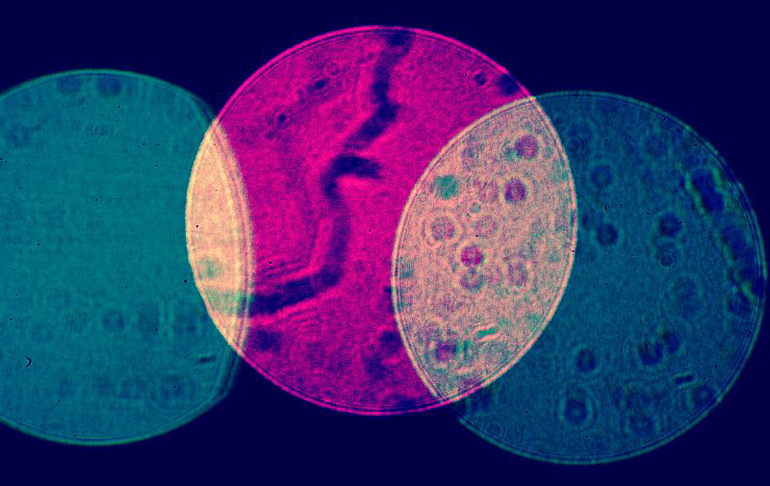Taking probiotics might be the latest health fad, but for people with inflammatory bowel diseases, the microbiome is a more serious matter. With these autoimmune diseases, the composition of the gut microbiome can have critical health consequences. In the June issue of GENETICS, Mistry et al. use fruit flies to determine whether immune system activity affects the composition of the gut microbiome. They found that flies with compromised immune systems had a similar microbiome to their healthy relatives, but flies with overactive immune systems had distinctly different microbiome compositions and more gut microbes overall. This work suggests that the interaction between the immune system and the gut microbiome is a two-way street.
As a fruit fly ages, the species composition of its gut microbiome changes Young flies have diverse microbiomes that vary with their genotype and environment, but as they mature into adults, the composition converges on a typical makeup. In this study, Mistry et al. surveyed microbiome composition across the lifespan of flies with healthy, compromised, or constitutively active immune systems while controlling for bacterial transmission from the mother—the most important initial source of microbiome bacteria.
Overall, their results revealed that a constitutively active immune system has a much larger impact on gut microbiome composition than an underactive immune system. In normal conditions, flies with an immune deficit develop the typical adult microbiome more rapidly and end up with a higher density of microbes but are otherwise similar to healthy flies. Only flies whose maternally introduced microbes were eliminated showed a difference in microbiome composition.
In contrast, flies with an overactive immune system maintained very different microbiome diversity to normal, even for those exposed to their mother’s microbes, indicating that constitutively active immunity has a powerful impact on the microbiome. The authors also found that when these flies were co-housed with healthy flies, the microbiomes of the healthy flies become more similar to those with overactive immune systems.
One possible explanation is that constant immune activity triggers inflammation in the gut, creating an aerobic environment that cultivates a different variety of bacteria than a healthy intestinal tract. Human conditions like Crohn’s disease and ulcerative colitis are characterized by constant inflammation and have been linked to changes in the gut microbiome. In fact, some types of bacteria commonly found in these patients were the same as those identified in the flies with overactive immune systems, suggesting Drosophila may prove a useful model for these debilitating diseases.
Interaction Between Familial Transmission and a Constitutively Active Immune System Shapes Gut Microbiota in Drosophila melanogaster.
Rupal Mistry, Ilias Kounatidis and Petros Ligoxygakis
GENETICS. June 1, 2017 vol. 206 no. 2 889-904; https://doi.org/10.1534/genetics.116.190215































